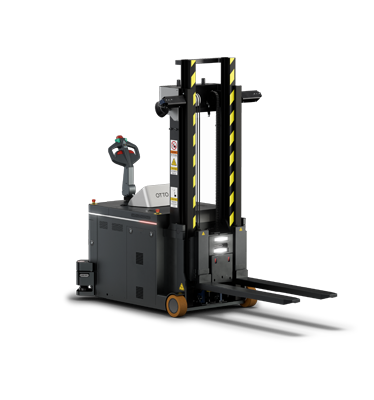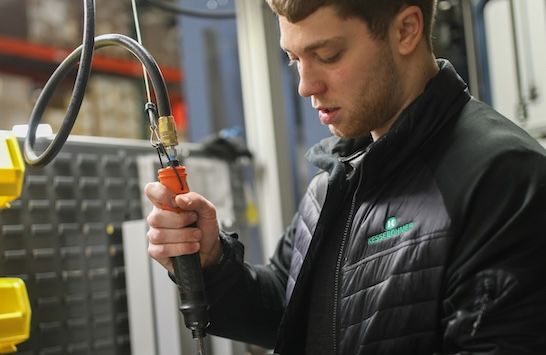Blog
Right-to-work: How policy affects manufacturers

As part of our series, "How Policy Affects Manufacturers," we're discussing changes and impacts of right-to-work laws - it’s shaping up to be an active year in the U.S., with more individual states joining the movement. Simply put, right-to-work laws allow employees to work without having to be a member of a union. The laws prohibit union security agreements - or agreements between employers and labor unions - that oversee employee membership, union dues payments, and other issues related to labor unions. With the right-to-work movement gaining traction, manufacturers have an opportunity to relocate or even reshore operations to right-to-work states. In turn, they can facilitate employment rate improvements, while empowering workers with high-paying, high value jobs.
Fair share fees: A must for manufacturers?
Early in 2017, Kentucky and Missouri became the latest states to permit fair-share (or agency-fee) arrangements between unions and employers. The provision requires non-union employees to pay a “fair share fee” to cover costs of the union’s collective bargaining activities - in essence, the unions found a loophole to collect funds from outside the members. With President Trump’s initiative to bring jobs back to America, however, republicans are working with states one by one to eliminate these provisions and are also taking aim at fair-share fees in national legislation and in the courts. In February, Republican Reps. Joe Wilson of South Carolina and Steve King of Iowa introduced legislation that would eliminate fair-share fees nationwide. If all goes according to plan, manufacturers who set up operations in right-to-work states will benefit from this new legislation by not having to pay into the fair share fee.
At least for now, federal law allows states to determine if they want to permit fair-share (or agency-fee) arrangements between unions and employers. The provision requires non-union employees to pay a “fair share fee” to cover costs of the union’s collective bargaining activities - in essence, the union has found a loophole to collect funds from outside the members. With President Trump’s initiative to bring jobs back to America, however, republicans are working with states one by one to eliminate these provisions and are also taking aim at fair-share fees in national legislation and in the courts. In February, Republican Reps. Joe Wilson of South Carolina and Steve King of Iowa introduced legislation that would eliminate fair-share fees nationwide. If all goes according to plan, manufacturers who set up operations in right-to-work states will benefit from this new legislation by not having to pay into the fair share fee.
Right-to-work in manufacturing: Protections improve employment

There are currently 28 U.S. states that prohibit union security agreements. Photo credit: wikipedia.com
Forty-one years ago, 19 states prohibited the termination of employees for refusal to join or pay fees to an unwanted union*. According to the U.S. Labor Department, 26.4% of nationwide employment in manufacturing at that time was located within those 19 states. All of these states have since continuously offered right-to-work protections for employees.
To correlate the protections, the share of U.S. employment at manufacturing facilities in those 19 states rose by 4.5% from 1985 to 2005. By 2006, the total manufacturing-establishment employment share of the then-22 right to work states was 36.9%. The growth of manufacturing in these states reveals a link between areas that feature pro-business policies and the increase in manufacturing jobs.
Thomas Holmes of the University of Minnesota, for example, once described the academic evidence on the proposition that pro-business policies help build jobs as mixed. His comparison of states, some with right-to-work laws and some without, found substantially more manufacturing job growth in those with right-to-work laws.
The future of high-paying manufacturing jobs

Photo credit: sheltonherals.com
Indiana has posted some key wins since adopting right-to-work laws. In February 2012, the month their right-to-work statute was adopted, Indiana had 470,800** manufacturing jobs, according to seasonally unadjusted U.S. Labor Department data. By 2017, Indiana’s total manufacturing employment had gone up by 11.2 percent to 523,700.
Indiana’s percentage increase in factory jobs since it became right-to-work is more than two-and-a-half times as great as the nationwide gain of 4.3 percent over the same period. Meanwhile, manufacturing employment has actually fallen by 1.9 percent in Illinois, Indiana’s forced-unionism neighbor to the west.
A similar trend is taking place in Kentucky, where Toyota’s Georgetown plant is gearing up for a $1.3 billion dollar infusion*** as the facility undergoes upgrades. Georgetown Rep. Damon Thayer explains, “We passed right-to-work. One week later, Amazon announces in Northern Kentucky that they're coming with a $1 billion dollar investment and as few months later here Toyota comes with a $1.3 billion dollar investment and I still think the best is yet to come.”
While the current regulatory and political environment remains in flux, one thing is for sure: manufacturers have the opportunity to look like veritable superheroes by bringing jobs and opportunities to states that have adopted pro-business stances.
While right to work has both supporters and detractors, many feel that the non-unionized environment fosters an ideal environment for modern manufacturing by empowering employees who disagree with big labor obstructionism and “hate the boss” class warfare to resist by quitting the union and withholding all financial support for it. “This is a key reason why the 26 right-to-work states now represent the future for high-paying manufacturing jobs and businesses in the U.S,” writes the National Institute for Labor Relations’ Stan Greer.
*Engineering.com, "Does Right-to-Work Help or Hinder Manufacturing?". November 2016
**CNSnews.com, "Manufacturing Employment on the Rise in 'Right to Work' Indiana". April 2017
***Wuky.org, "Georgetown Toyota Plant Set for $1.33B Injection, Bevin Says More to Come". April 2017







